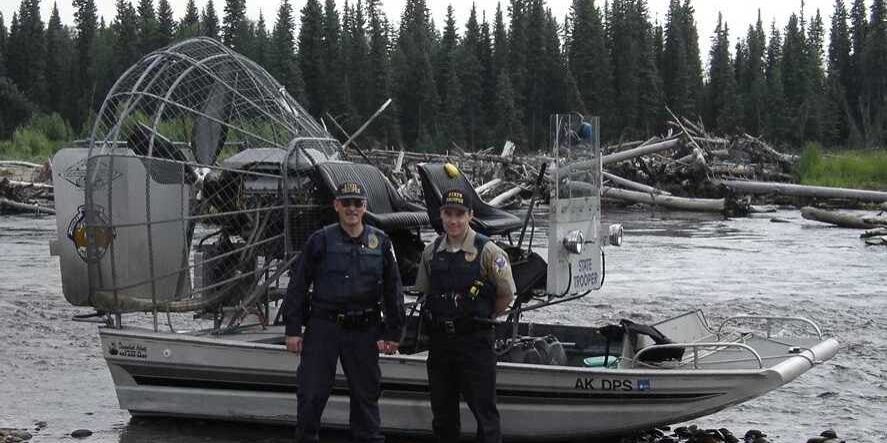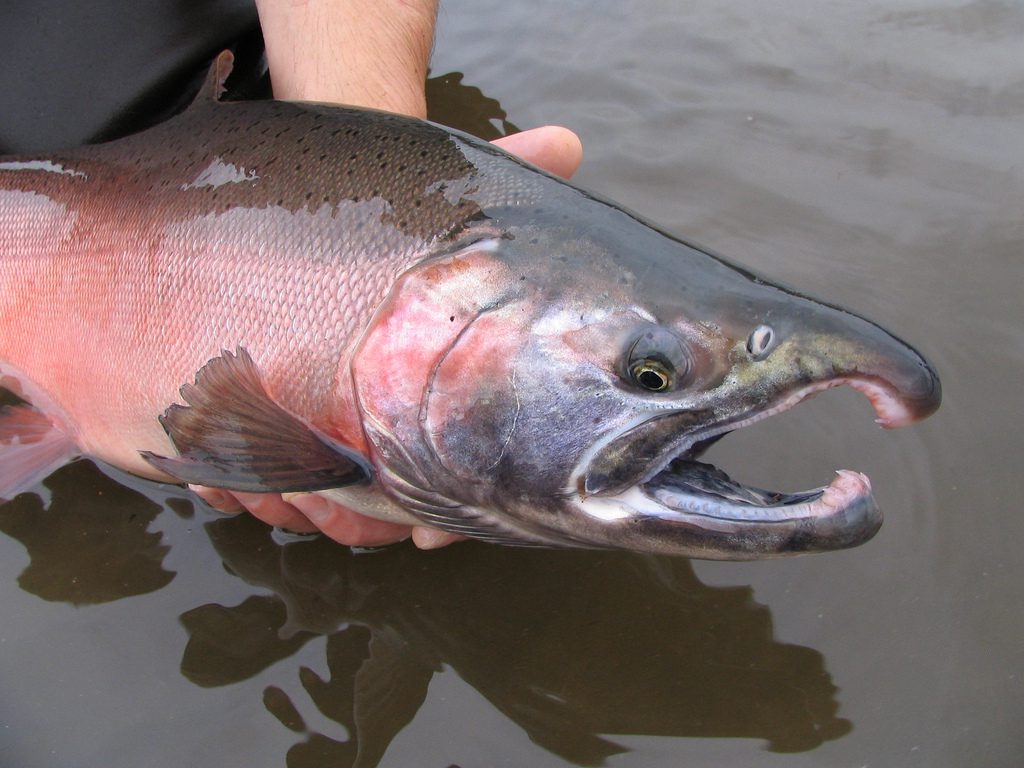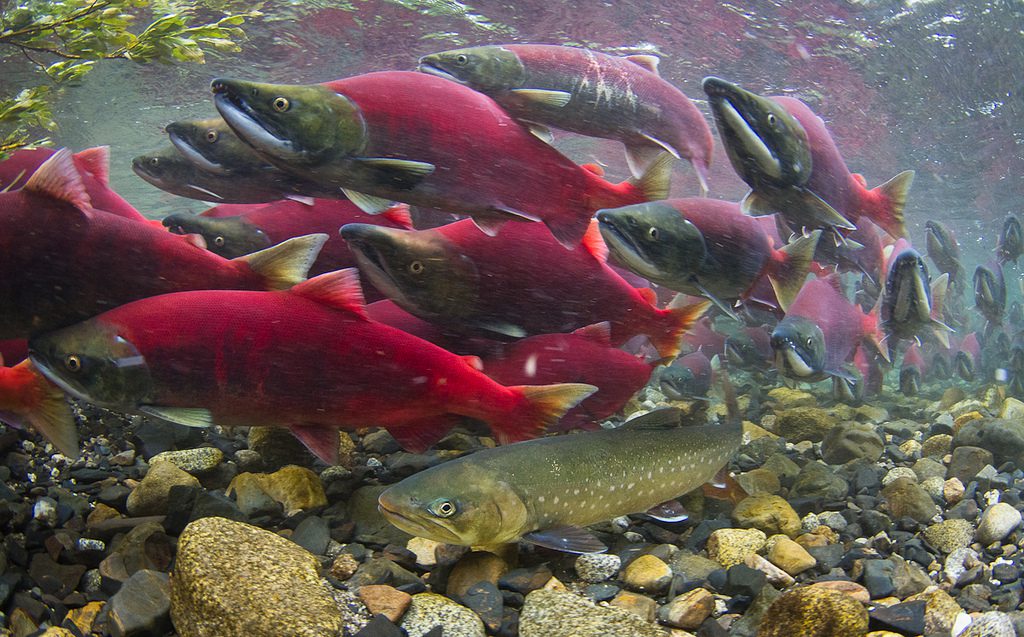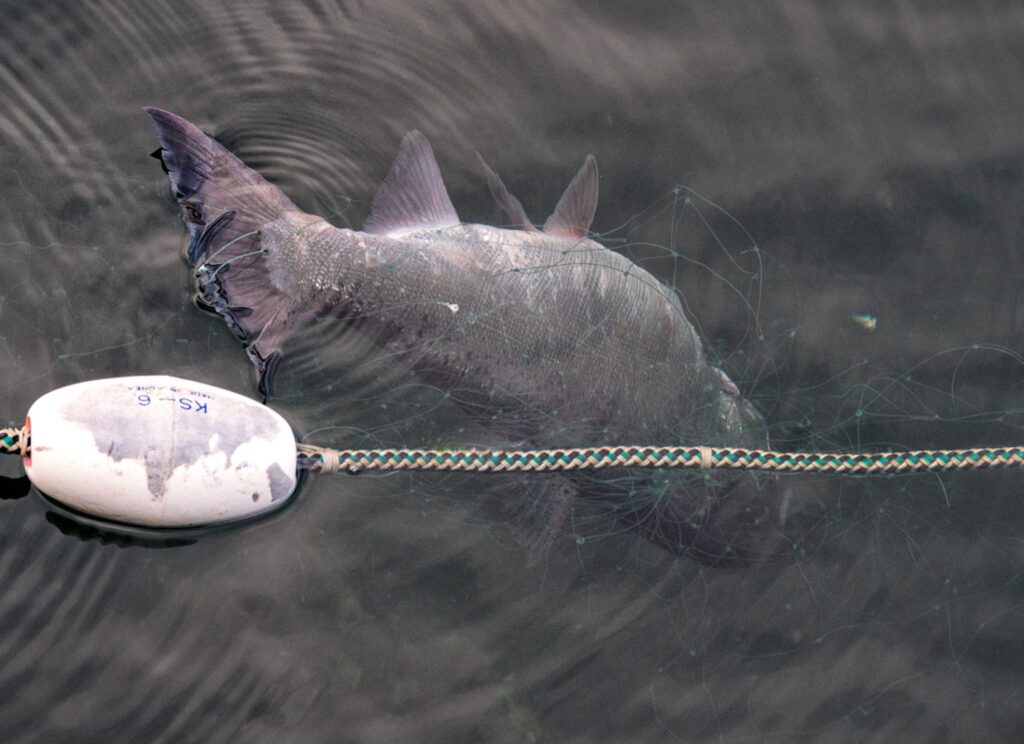In spite of this season’s unprecedented closure of fishing for Chinook salmon in Western Alaska, the state’s approach to policing wildlife has remained largely unchanged.
“As far as enforcement levels, the number of troopers participating, it’s pretty much the same as in previous years,” said Captain Steve Hall with the wildlife troopers, the group within the Alaska State Trooper’s tasked with enforcing policies established by managers at the Department of Fish and Game.
Wildlife Troopers use equipment checks and contact with local salmon users as their primary tools for enforcing fishing restrictions as the Chinook move into the rivers.
“The Troopers are primarily concentrated on preservation of Chinook on the Yukon River and Kuskokwim River,” Hall continued. “As they move up river our efforts will continue to move up river on the Yukon. And if we have information that there are problems in a certain area we’ll shift troopers to those locations.”
But there’s one big change to how restrictions are being monitored: for 32 communities inside the Yukon Delta National Wildlife Refuge this year, enforcement is being carried out not by the state, but by the federal officers.
Andrea Mederios, the public affairs specialist for the Department of Fish and Wildlife—a federal agency—said the action is new this year.
“The Federal Subsistence Board is implementing Title 8 of ANILCA, which requires that rural residents be given priority access to subsistence resources on federal public land in Alaska,” Mederios explained.
After the Native Village of Napaskiak [nuh-PASK-ee-yak] won its appeal to the Subsistence Board, the federal definition of who counts as a subsistence user replaced the state’s definition across a large part of the Kuskokwim drainage. That means instead of any Alaska resident being allowed to fish under a subsistence permit, only local residents of small communities can. But since even subsistence fishing is closed this year, the only effective difference is that at any given time about 11 federal agents are checking nets and boating on the river–not their state counterparts.
Criticism of the restrictions has been intense, and even called a form of “massacre” by salmon users. But those on the enforcement side believe the majority of those involved are ultimately working towards the same goal.
“Our impression is that lots of folks realize that the problem is with the need to meet the escapement for Chinook, in order to continue to have Chinook in the Yukon and Kuskokwim rivers,” said Captain Hall. “So we’ve found a few violations—nets that aren’t legal and things like that—but for the most part, to date, the fishery has gone fairly smoothly.”
As those federal U.S. Fish and Wildlife officers patrol along the Kuskokwim, Mederios said, they are coordinating with local leadership on an exception to the king salmon restrictions.
“The in-season manager for the Kuskokwim Chinook salmon is Brian McCaffrey, and he established that there would be a thousand fish that could be available for a cultural and social permit,” she explained.
The special permit from the Federal managers authorizes 32 villages along the Kuskokwim and coastal areas to participate in the special harvest of less than 1,000 king salmon. The special permit allows for fishing Mondays, Wednesdays, and Fridays from 9am to 9pm and expires on June 30, or when the quota for the village is met. But that social and cultural harvest of kings now many not happen – at least not in Bethel.
KYUK’s Daysha Eaton reports both the harvest and the community dinner in Bethel have been cancelled because a key staff member has had an unforeseen circumstance that has taken them away from Bethel.
Zack Brink, executive director for Bethel’s tribe, says that community dinner was set for June 20 and would have allowed the tribe in Bethel to harvest up to 100 king salmon. It’s unclear whether the Orutsararmiut Native Council will reschedule their social and cultural harvest and dinner.
Some tribes are refusing to participate in the social and cultural harvest because they say they’re not allowed to harvest what they need.







